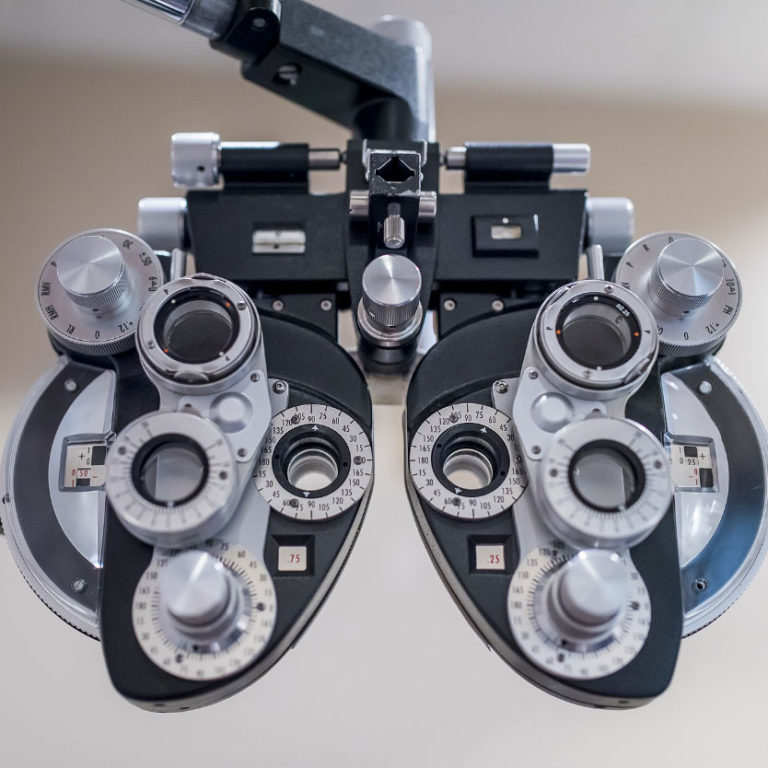An eye exam consists of an array of tests carried out by an eye care professional or specialist who examines your vision and ability to focus on distinguishing objects. It is inclusive of all check-ups and analysis pertaining to the eye.
An in-depth eye examination is a composite of external assessments followed by special tests analyzing pupil function, visual acuity, intraocular pressure, visual fields, and ophthalmoscopy through a pupil that is dilated. On the contrary, a partial eye examination consists of tests for pupil function, extraocular muscle motility, visual acuity, and ophthalmoscopy through a pupil that is undilated.
Why is it important to schedule eye exams?
An eye exam is not only for poor vision and evaluating visual acuity but it is also essential for your overall health. Eye exams assess both your visual acuity and evaluate the comprehensive health of your eye. It is imperative for early detection of detrimental eye problems such as:
- Glaucoma
- Cataracts
- Macular degeneration
- Detached retina
The examination procedure can also target premature signs of serious health complications such as:
- Diabetes
- High blood pressure
- Stroke
The principle behind these tests is the identification of delicate blood vessels and other structures within the eye.
When is the right time to schedule an eye exam?
You should periodically have your eyes assessed throughout your lifetime and discuss any history of complications with your eye care specialist. Therefore, it is recommended that you undergo a comprehensive eye examination every year. However, there are important signs you should not ignore that may require more frequent visits. These important signs include:
- Persistent headaches – A regular eye exam can help treat or prevent a variety of underlying issues causing headaches. Your headache could be a sign of underlying astigmatism, long-sightedness, and even glaucoma. For this reason, it is essential to have your eyes checked.
- Infected eye – Symptoms of an infected eye include pain, eye discharge, redness, light sensitivity, blurred vision, and feeling like an object is in your eye. An antibiotic may be needed to clear things up in this case.
- Floaters galore and bright flashes – A sudden upsurge of floaters and flashing lights are indications of a detached retina. This is considered very dangerous and must be treated as an emergency. Delayed treatment of a detached retina can lead to blindness.
- Increased eye pain – An overwhelming majority tolerate painful eye symptoms and leave it unattended. Eye pain can be an indication of conditions like glaucoma, a scratched cornea, and eye cancer.
- Incessant squinting – Squinting frequently is not a sustainable means of dealing with eye issues. It is advised that you visit your eye care specialist for further treatment if you cannot see clearly without squinting.
- You are diabetic and/or it runs in your family – Diabetes is one systemic illness that can cause complications of the retina. It is, therefore, a significant reason to always schedule appointments with an eye care specialist to ensure your condition does not worsen.
Categories of people predisposed to eye exams
- Children – Statistically 20% of school going children suffer from vision problems according to the American Optometric Association. More extensive research discloses 24% of adolescents with correctable refractive problems such as nearsightedness and farsightedness have updated prescriptions contact lenses unable to resolve their errors.
- Older adults – Advancement with age predisposes you to common causes of blindness such as glaucoma, diabetic retinopathy, and macular degeneration. Routine examination of the eye is a way to help prevent these conditions.
- People with a history of eye problems – Previous eye conditions may resurface and if a complete eye examination was not done, more problems may arise down the road. Therefore, it is important to maintain regular eye checkups.
What should you expect in an eye exam visit?
Below are the different types of eye tests and what can be expected in a comprehensive examination.
- Visual acuity tests – The most frequent tests performed to assess the sharpness of your vision. One should expect a projected eye chart to analyze distance visual acuity and a handheld acuity chart for near vision measurement.
- Cover test – Cover tests are designed for assessing the alignment of eyes. A small object across the room will be availed and your eyes will be alternately covered while you stare at it.
- Glaucoma test – This test is used to measure the pressure in your eye. Your eye care specialist will utilize an instrument known as an applanation tonometer to gently press against the outside of your eye.
- Pupil dilation – Your eye care specialist will use pupil dilating drops which take about 20-30 minutes for the pupils to fully open. Afterward, your specialist will use various instruments to examine the optic nerve and retina.
Conclusion
An eye exam can appear like a daunting task and one may tend to ignore it. However, regular eye checkups are proven to be extremely beneficial in maintaining your overall health and well-being.
Sources:
- https://www.webmd.com/eye-health/visit-eye-doctor
- https://www.allaboutvision.com/eye-exam/preparing.htm
- https://www.everydayhealth.com/vision-center/9-serious-vision-symptoms-to-watch-out-for.aspx
- https://www.allaboutvision.com/conditions/hyperopia.htm
- https://www.aoa.org/patients-and-public/good-vision-throughout-life/childrens-vision

